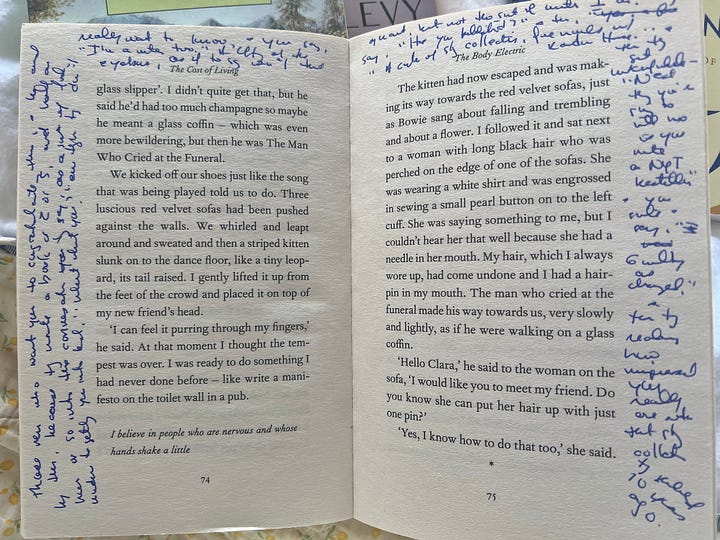Get inspired to write in the Flash Fiction Intensive. In this course, you will write twelve stories in four weeks and submit them for publication. Learn more.
I love memoirs of the writing life—in particular, books that are not about writing so much as about the daily experience of being a writer, the act of making one's way through everyday existence (children, roof leaks, marriage, moving) while attempting to inhabit a life of the mind.


When my writing comes to a halt, personal narratives by writers help me get back to that coveted interiority, the quiet brain space necessary for the act of making something. Every one of these books tripped some invisible wire and sent me back into writing.
Real Estate: A Living Autobiography, by Deborah Levy
a writer fantasizes about the place she would live and write
I discovered Deborah Levy while living in Paris, thanks to a tweet by a fellow expat from California,
. When I say "discover" I really mean I came upon her very late, after apparently everyone had already been reading her books for years. Brennan's tweet inspired me to seek out The Cost of Living at Librarie Galignani, the wonderful old bookstore on Rue de Rivoli with a well-curated English language section. I devoured it. I had to stop reading every few pages because it inspired me to sit down and write. If I remember the timeline correctly, soon after I bought The Cost of Living, Paris shut down for our first lockdown (or was it our second?). Paris was so tightly locked down that Galignani, Shakespeare and Company, and Red Wheelbarrow weren't even shipping books, so I had to wait for things to reopen to go back to Galignani for Things I Don't Want to Know: On Writing.



